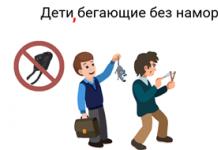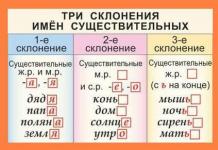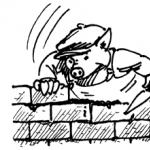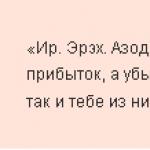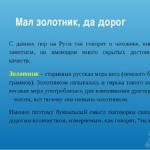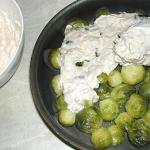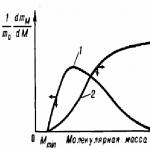Spelling case endings of nouns
The spelling of the endings of nouns depends on what type of declension they belong to. Errors in choosing endings -e or - And usually appear not in all case forms, but only in the forms of three cases: genitive, dative and prepositional.
Nouns I declination(country, land, alley) in genitive forms have the ending -s(s), and in the dative and prepositional forms -e:
Genus. n. (who? what?) countries earth alleys
Dat. n. (to whom? what?) country earth alley
Suggestion n. (about whom? about what?) (about) country (about) land (about) alley
Nouns of the 2nd declension in the form of the prepositional case they have an ending -e: (in) the house, (on) the horse, (on) the window, (about) the heat, (in) the frost. There are usually no mistakes made here.
Nouns of III declension(steppe, night, quiet) in the forms of the genitive, dative and prepositional cases have the ending -And:
Genus. n. (who? what?) steppes nights silence
Dat. n. (to whom? what?) steppes nights silence
Suggestion p. (about whom? about what?) (about) steppe (about) night (in) silence
Recommendation. To check the spelling of an unstressed ending in a noun, it is enough to remember the keyword with a stressed ending in the same form (according to the morphological principle of Russian spelling). For the first declension this could be the word Earth, for II - window, for III - steppe.
Indeclinable nouns
Word path, as well as ten nouns in -me (banner, flame, tribe, stirrup, etc.) are indeclinable and in the forms of the genitive, dative and prepositional cases they have the ending -And:
Genus. n. (who? what?) pathbannerflame
Dat. n. (to whom? what?) paths of the banner of the flame
Suggestion p. (about whom? about what?) (in) the way (on) the banner (in) the tribe
Case forms of nouns in -i, -i, -i
1.
Nouns with a mixed masculine and neuter stem -th And -ies in the feminine prepositional case on -and I in the dative and prepositional cases the singular has an unstressed ending -And(but not -e as a general rule), for example:
genius - about genius, sodium - about sodium, radium - about radium, Vasily - about Vasily, Yuri - about Yuri;
separation - in the department, return - upon return, assistance - with assistance;
army - to the army, about the army, line - along the line, on the line, station - to the station, at the station; Bulgaria – in Bulgaria, in Bulgaria; Maria - to Maria, about Maria.
Note. If there are options for -ies And -ye, -and I And -ya the indicated case forms have different endings. Nouns on –ya And -ye are declined according to the general rule and have an ending in the dative and prepositional cases -e:
about skill - about skill, in flowering - in flowering, about verbosity - about verbosity, about Natalia - about Natalya, to Maria - to Marya.
2. Few nouns in -ii, -ii with a monosyllabic base have the ending in the indicated cases in an unstressed position as a general rule -e: serpent - about the serpent, ky - about kiy, Kiy (the legendary founder of Kyiv) - about Kiy, chiy (plant) - about chiy, "Viy" - in "Bue", Pius - about Pius, under Pope Pius; Biya (river) - along Biya, on Biya; Iya, Leah, Viya (female names) - to Iya, about Leah, about Vie; Gia (male name) - to Gia, about Gia. (§ 40 Code of Regulations 1956)
3. Few nouns have - no, -and I, with an accent on the ending, the indicated case forms end in - And on either - e, eg: judge - to the judge, about the judge, litia - in litia-, litany - in litany, being - about being, life - about life, in life, but: edge - on the edge, about the edge, Aliya, Zulfiya (personal names) - about Aliya, to Zulfiya.
Vowels in some unstressed case endings
Nouns with suffix -searching-,
if they are masculine or neuter, they end in them. pad. units hours on -e
, For example: house, camel, fishing rod, swamp. If they are feminine, then they end in them. pad. units hours on -A
, For example: cows, hands, dirt.
Masculine nouns with suffixes -yushk-, -yushk-, ishk-, yushk- , denoting animate objects, as well as all feminine nouns with the same suffixes end in them. pad. units hours on -A , For example: grandfather, father, boy, old man, little man, nightingale, nanny, little hand.
Masculine nouns denoting inanimate objects, as well as all neuter nouns, have them in them. pad. units h. after these suffixes the ending -O , For example: bread, little yard, feather, coat.
At the end of them. pad. units including animate masculine nouns after suffixes -To- And -l- is written A , For example: reveler, started singing, was big, ate; colloquial proper names like Gavrila, Kirila, Mikhaila(used along with Gabriel, Kirill, Mikhail).
The exception is Old Russian and Ukrainian names and surnames in -ko , For example: Mikhalko, Shevchenko, as well as ancient and regional proper names on -lo , For example: Yarilo, Mikhailo Lomonosov.
In the family pad. plural hours from nouns ending in singular. h. on unstruck -ya
And -ye
, written -th
, and from nouns ending in -ya
And -ye
under stress, written -to her
, For example: shalunya - naughty, gorge - gorge, But: bench - bench, gun - gun.
Declension of proper names
In surnames on -in (-yn) and on -ov(s) is written in the creative work. pad. units h. -th (according to the declension of adjectives), for example: Pavel Lisitsyn – Pavel Lisitsyn, Ivan Turgenev – Ivan Turgenev.
Note. In foreign surnames -in And -s is written in the creative work. pad. units h. -om (according to the declension of nouns), for example: Green - Green, Darwin - Darwin, Bülow - Bülow.
In the names of settlements on -in (-yn), -ov (-ev), -ino (-yno), -ovo (-evo) is written in the creative work. pad. units h. -ohm , For example:
the city of Pskov - the city of Pskov
city of Lviv – city of Lviv
the city of Saratov - the city of Saratov
the city of Kanev - the city of Kanev
the city of Kalinin - the city of Kalinin
the city of Kirov - the city of Kirov
Maryino village - Maryino village
the village of Lisitsyno - the village of Lisitsyn
village Kryukovo - village Kryukovo
Sections: Primary School
Target:
- know the rule for spelling vowels e And And in case endings of singular nouns;
- learn to find nouns with the studied spelling;
- learn to write vowels correctly e And And in unstressed case endings of singular nouns.
PROGRESS OF THE CLASS
1. Vocabulary work.
Let's start by reviewing vocabulary words.
Here are vocabulary words we have already studied. Let's play your favorite game “Find a word in a word.” Write down in your notebooks and underline the words you find.
Eleven
Horizon
Road
2. Goal setting.
What is a road? We'll hit the road today. Which one?
On the desk:
Tourist roads run through dense forests, through swampy tundra, through hot deserts, through plains, and through mountainous areas.
Why were there different options when writing these words?
Why in a weak position?
Formulate a question that we must repeat with you today.
Spelling of vowels E and I in the endings of singular nouns.
3. Work in groups.
Task of the first difficulty level.
Using the key words, fill out the table “Singular noun endings” on the board. Rice. 1
Rice. 1
Task of the second difficulty level.
Create models and diagrams “Spelling of vowels in singular case endings.”
Checking the work.
4. Updating knowledge.
What case is a noun of the 1st declension in if it is known that its ending is and?
1) In the genitive;
2) in the dative;
3) in the prepositional.
Nouns of which declension in three case forms have the same endings?
1) 1st declension;
2) 2nd declension;
3) 3rd declension.
So, in order to correctly write the unstressed case ending of a noun, you need to define it...
4) declension and by the relationship between declension and case I recognize the ending.
Restore the order of spelling actions when writing unstressed case endings of nouns.
1) I determine the declination;
2) I determine the case;
3) I find a noun with an unstressed case ending;
4) I recognize the ending by the relationship between declension and case.
We repeat the algorithm!
At the blackboard:
Which island will the boats land on - words and why?
Task of the first difficulty level. Work on individual cards.
Copy, insert the missing spelling, determine case, declension.
To the horse..., along the alley..., near the village..., to grandma's..., on the side of the road..., about mom..., about mother..., in the muse..., at the exhibition..., in the stove..., in the oven....
Task of the second difficulty level. Working with cards.
Write down phrases in which the noun has the ending - e. Make up 3-4 phrases in which the noun has the ending - i.
Ask for help..., walk along the roads..., write in a notebook..., find yourself at the edge of the forest..., go to a village..., sing with joy..., draw in an album....
Task 3 levels of difficulty. Working with punched cards.
E or -And at the endings of nouns.
1) Draw in an album, in a notebook, in a notebook;
2) stand on the edge of the forest, on the road, in the square;
3) go to your daughter, mother, grandmother;
4) lay on the table, on a shelf, on a desk;
5) go to the river, to the hut, to the square;
6) edge of a grove, road, alley;
7) the smell of wormwood, lilac, greenery;
8) ask for help, support, endurance.
Students independently choose the difficulty level of the task.
5. General control
On your path you need to shade the desired cell. Fig.2.
Rice. 2
Through the forest thicket e, across the swampy tundra e, in the hot desert e, speed competition And, in endurance And, faithful to friendship e, requires observation And, caution And, used in ancient times And, served for transmissions And.
Which? Which? Which? Which? Using these questions, you can check the spelling of an unstressed vowel at the end of an adjective. However, there are exceptions to the rule, which are listed in this article.
Unstressed vowels at the end of adjectives
The spelling of unstressed vowels at the end of adjectives is no different from the spelling of stressed vowels, compare: young wow– old wow, young them– old them, young wow– old wow .
To check the spelling of an unstressed vowel at the end of an adjective, you need to determine which noun the word agrees with and ask a question from it - Which? Which? Which? Which? or derivative. The ending of the question will be the same as the case ending of the adjective.
Examples: y high Wow(How Wow?) at home, call no(How no?) bells, soft Ouch(How Ouch?) cloth.
Exceptions
- In the same forms I. and V. p. masculine singular the ending is always written in the unstressed position -th (black, near, bitter), in the striking position – -Ouch (golden, blind, rye).
- In adjectives with a base on a solid consonant, vowels are written in case endings -s-, -o- (new, new); in words with a base on a soft or hissing consonant, vowels are written -i-, -e- (blooming, blooming); in adjectives with stems g, k, x vowels in endings are written in the same way as in the test question (bright, bright).
- In forms of V. p. feminine singular, the ending is written for adjectives with a base on a soft consonant -yuyu- (evening, blue).
TOP 1 articlewho are reading along with this
What case endings do nouns have? You will find the answer to this question in the materials of the presented article. We will also tell you about the differences between case endings of different declension and give some examples.
General information
Knowing how words change by case is extremely important. After all, spelling case endings brings a lot of problems when creating a literate text. It should be noted that the choice of one or another letter in nouns depends entirely on which declension they belong to. By the way, there are errors in the spelling of endings -And or -e appear only in certain case forms: dative, genitive and prepositional cases. That is why it is recommended to remember them.
What is declination? Types of declinations
Nominal ones are declined according to the adjective type, as well as the substantive and pronominal type. In this article we are only interested in the substantive declension. It is divided into three subtypes. Let's look at them in more detail:
- According to the 1st declension, nouns (in the singular) of the common (crybaby), masculine (dad) and feminine (mother) gender, which have the endings -я or -а in the nominative case, change.
- According to the 2nd declension, nouns (in the singular) of the masculine gender are changed, having (nail, house) or endings -e, -o (domishche, little house), as well as neuter nouns with endings -е, -е and -о ( field, spear, window) in the nominative case.
- The 3rd declension changes feminine nouns (singular) that end in a hissing or soft consonant (for example, pride, thought, branch). If such a word has a hissing consonant at the end, then its belonging to the 3rd declension should be indicated by a soft sign (for example, mouse, rye, stove, etc.).
Singular case endings for nouns
To write a letter correctly, for example, it is advisable to know all the possible endings of nouns of different declensions. To do this, you should decline the corresponding words by case.

Nouns of the 1st declension
- Nominative case (who? what?) - dad(a), iv(a), Kol(ya), Yul(ya).
- Genitive case (what? whom?) - dad(s), iv(s), Kol(s), Yul(s).
- Dative case (to what? to whom?) - pap(e), iv(e), Kol(e), Yul(e).
- Accusative case (what? whom?) - pap(u), iv(u), Kol(yu), Yul(yu).
- Instrumental case (with what? by whom?) - dad(oh), iv(oh), Kol(ey), Yul(ey).
- Prepositional case (about what? about whom?) - about dad (e), about iv (e), about Kol (e), about Yul (e).
The case endings of 1st declension nouns are the same for all similar words. That is why, if you have difficulties while writing them, you can safely look at this table and determine the correct ending.
Nouns of the 2nd declension
- Nominative case (who? what?) - deer(_), watermelon(_), gender(e), sky(o).
- Genitive case (what? whom?) - deer(s), watermelon(s), gender(s), sky(s).
- Dative case (to what? to whom?) - deer (y), watermelon (y), floor (y), sky (y).
- Accusative case (what? whom?) - deer (me), watermelon (_), floor (e), sky (o).
- Instrumental case (with what? by whom?) - deer (em), watermelon (s), floor (s), sky (s).
- Prepositional case (about whom? about what?) - about deer (e), about watermelon (e), about gender (e), about sky (e).
Nouns of the 3rd declension

Unstressed case endings of nouns
In order to avoid making mistakes while writing a text, teachers recommend that their students memorize the endings of all three declensions. However, this is not as simple as it seems at first glance. It is especially difficult to remember those words that have unstressed case endings. But there is a separate rule for this case in the Russian language. Let's imagine it right now.
If the case endings of nouns are in an unstressed position, then their correct spelling is determined by checking words of the same type of declension that end in a similar stressed letter. Here's an example:
- knee, field, lake (face, window, chisel);
- about the book, (about the hand);
- horses, bowls (stumps, tables);
- watchman, house, field, glue (knife, table, edge, window);
- lake, chair, stone (window, table, stump);
- about the watchman, about the teacher, in the field, about the dress, (about the knife, about the horse, in the window, about the linen);
- songs, servants, windows (teachers, cities, seas).
Plural nouns
We discussed above what case endings the singular nouns have. But sometimes it is necessary to correctly decline words in the plural. It should be especially noted that their case endings do not depend on what declension they have. However, they can differ markedly for inanimate and animate objects (not always).

Plural inanimate nouns
- Nominative case (what?) - chair(s), watermelon(s).
- Genitive case (of what?) - chair(s), watermelon(s).
- Dative case (to what?) - chair(s), watermelon(s).
- Accusative case (what?) - chair(s), watermelon(s).
- Instrumental case (what?) - chair(s), watermelon(s).
- Prepositional case (about what?) - about chair(s), watermelon(s).
Animate nouns in the plural
- Nominative case (who?) - lan(s), lionesses(s).
- Genitive case (whom?) - lan(s), lionesses(_).
- Dative case (to whom?) - lan(yam), lioness(am).
- Accusative case (who?) - lan(s), lionesses(_).
- Instrumental case (by whom?) - lan(s), lionesses(s).
- Prepositional case (about whom?) - about doe(s), lioness(es).
Indeclinable words (nouns)
As mentioned above, nouns have one or another case ending depending on which of the three declensions they belong to. However, in Russian there are often words that are indeclinable. These include nouns that, after changing cases, have endings of different declensions.

So, the indeclinable nouns include ten that end in -mya. Let's name them in order:
- burden;
- banner;
- tribe;
- time;
- stirrup;
- udder;
- crown;
- flame;
- seed.
Among other things, the masculine word “path” is classified as indeclinable. In order to correctly decline such nouns, you should know that when changed they have the suffix -en- or -yon (for example: banner - banner, crown - crown, name - names, etc.).
Note
Nouns that end in -iya (series, army, Maria, line, etc.) represent a special variant of declension. Thus, in the prepositional, genitive and dative forms they have the ending -i. Here's an example:
- Genitive case (what? whom?) - seri(s), armies(s), Mari(s), line(s).
- Dative case (to what? to whom?) - seri(s), armies(s), Mari(s), line(s).
- Prepositional case (about what? about whom?) - about seri (s), about army (s), about Mari (s), about line (s).
It should be noted that these words are not recommended to be confused with nouns ending in -ya (for example, Natalya, Marya, Sophia). After all, they decline according to the general rules, and also have the ending -e in the forms of the prepositional and dative cases (Natalia, Marya, Sophia).

By the way, proper names used to call settlements (Kashin, Borodino Kalinin) have a special form in the instrumental case (singular). Thus, the presented words are declined according to the model of nouns of the 2nd declension and have a case ending -om (Kalinin, Kashin, Borodin). It must also be said that such words should not be confused with Russian surnames (Kashin, Borodin, Kalinin), which in the instrumental case have the ending -y (Kalinin, Kashin, Borodin).
E.A. Makovey, Russian language teacher, Municipal Educational Institution Secondary School No. 1, Adygeisk,
A.I. Arkhipova, professor of Kuban State University
§ 4. Spelling endings
Ending - this is a variable part of a word that forms the form of a word and serves to form a connection between words in a phrase and sentence.
4.1. Spelling unstressed endings of nouns
The choice of an unstressed vowel at the end of a noun depends on the type of its declension.
In China.., in Kore.., in Germany.., in the Arctic.., in amazement..
To find out the spelling of the ending of a noun, follow these steps:
1) put the noun in the initial form (who what?);
2) determine the type of its declination from the table;
3) substitute in its place a test word for this type of declension (this word has a stressed ending in different cases, which will indicate the desired vowel).
|
Special group of nouns* |
-me |
time |
Path |
|
1st declension |
-a (m.r./f.r.) I (m. b./f. b.) |
a country |
Wall |
|
2nd declension |
Zero ending (m.r.) |
horse |
Table |
|
3rd declension |
-ь (f. r.) |
mother |
Steppe |
*A special group of nouns includes differently inflected nouns, as well as nouns of 1st and 2nd declension with special endings (so-called nouns in -ee, -ie, ie).
In China - (China, 2 pages, in the table).
in Korea - (Korea, 1st book, in the wall).
in Germany - (Germany, esp. gr., on the way).
in the Arctic - (Arctic, 2nd volume, in the table).
in amazement - (amazement, special gr., on the way).
|
Note! Rememberthat nouns like doubt And doubt, Maria And Marya inclined differently: Remember, that the rule does not apply to indeclinable nouns and to nouns indeclinable as adjectives. |
4.2. Spelling unstressed endings of adjectives and participles
Unstressed endings of adjectives and participles are checked by the stressed ending of the test word.
In a flying plane; changing opinion; powerful voice.
You can determine the ending by the test word - what question? (he will suggest a stressed vowel at the end):
in a rotating cylinder
(which one? - ending -om / -em) in rotating;
with the changing wind
(with which one? - ending -y/-im) with changing;
a worried mother (which one? - ending -th/s) a worried mother;
on a sinking ship
(on what ship? - ending -om / -em) on the sinking
Exception:
in the form of the nominative (accusative) case m.r. units The ending of the adjective (participle) should be remembered: -Y / -YY.
The Lost Man; curling smoke.
4.3. Spelling of unstressed personal verb endings
The choice of an unstressed vowel in the personal ending of a verb depends on the type of its conjugation.
We are c..m; you hear...you; they are fighting..
To find out the spelling of the ending of a verb, follow these steps:
1) put the verb in the indefinite form ( what to do / what to do?);
2) determine the type of conjugation from the table;
3) substitute the test word (the stressed ending of the test word will prompt the desired vowel).
We glue ... m (glue, II conjugation, we say) - glue
You hear...sh (hear, II conjugation, you speak) - hear
They fight ... fight (fight, I conjugation, they take) - fight
|
Note! When putting a verb into an indefinite form, you should ensure that the verb retains the same verbal form. Verbs like y hear, lay etc. (formed with the help of prefixes from verbs - exceptions) belong to the same type of conjugation as the exceptions themselves. Verbs like shave, hold on etc. (formed with the help of the suffix -СЯ from verbs - exceptions) belong to the same type of conjugation as the exceptions themselves. |
In a flying plane (which one?).
Changing opinions (which ones?).
Mighty voice (excl.).

